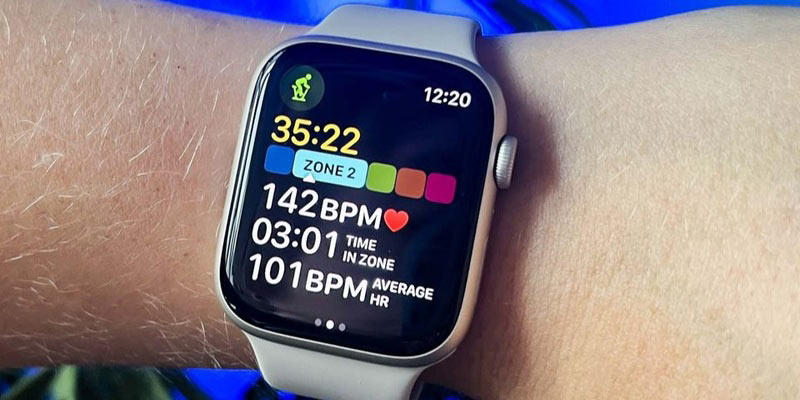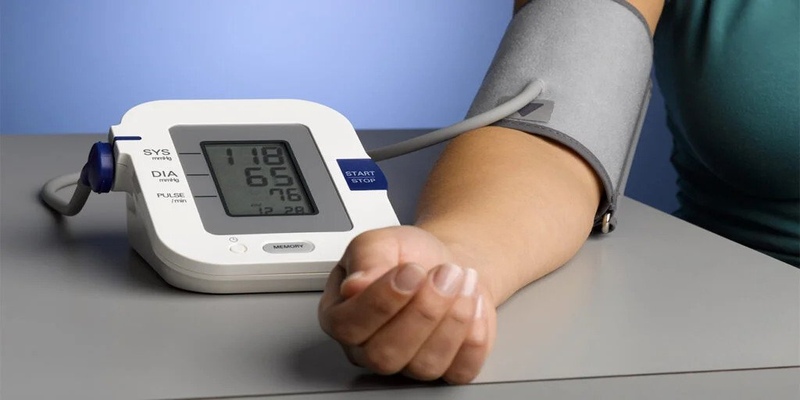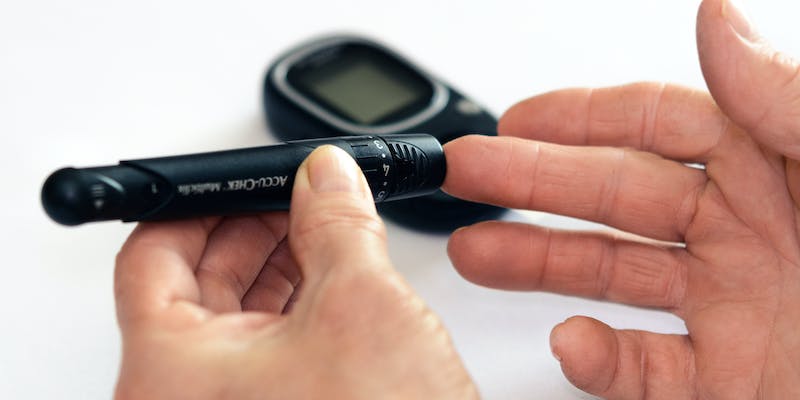Blood pressure above normal is hypertension. High blood pressure indicates hypertension. High blood pressure raises heart disease risk. Comparing your systolic and diastolic blood pressure to reference levels helps your doctor diagnose and manage high blood pressure.
Hypertension usually develops slowly. Lack of exercise and lousy lifestyle management cause it. Pre-existing conditions like diabetes and obesity increase hypertension risk. Chronic hypertension
Foods for High Blood Pressure
If you have high blood pressure, try these eight best foods to eat for high blood pressure.
- Fatty Fish Like Salmon
- Oatmeal
- Olive oil
- Leafy Green
- Eggs
- Broccoli
- Herbs and Spices
- Low-fat yogurt
Fatty Fish
The omega-3 fats in fatty fish benefit the heart and should be consumed regularly. By reducing inflammation, these fats aid in decreasing blood pressure.
Omega-3 fats from the diet or supplements were linked to lower blood pressure in a 2022 research that included 71 papers and health data from 4,973 persons. Two to three grams of omega-3 fats daily (about a 3.5-ounce plate of salmon) significantly decreased blood pressure. Consuming fatty fish in a balanced diet helps naturally manage and prevent hypertension.
Oatmeal
A heart-healthy and blood-pressure-friendly diet should include oatmeal, a nutritional powerhouse. High-fiber whole grains provide several health advantages. Heart health benefits from oats include lowering cardiovascular disease risk. Its soluble fiber lowers cholesterol, which is essential for heart health. Weight control is also helped by oatmeal fiber, which keeps you satisfied longer.
Daily consumption of three servings of healthy grains like oatmeal reduces heart and blood pressure disease risk by 15%. Breakfasting on oatmeal provides critical nutrients and sets a hypertension tone. Add whole-wheat bread, quinoa, barley, or brown rice to your meals for healthy eating.
Olive Oil
Olive oil has several health advantages despite its high-calorie count. Polyphenol-rich, it lowers blood pressure, especially in women. Switching to olive oil as your primary cooking oil has health benefits. Recent research highlights that substituting butter with olive oil can reduce disease and mortality risk. It's essential to prioritize oils that remain liquid at room temperature; olive oil fits the bill perfectly.
This liquid gold from the Mediterranean enhances your dishes' flavors and supports cardiovascular health. Olive oil polyphenols lower blood pressure, which helps manage hypertension. Olive oil enhances the taste of your meals and may decrease your blood pressure, improving your heart and general health. Enjoy olive oil's health advantages with this easy diet modification.
Leafy Greens
Swiss chard and spinach may lower blood pressure. These lush veggies include potassium and magnesium, crucial for blood pressure. One cup of cooked Swiss chard delivers a significant amount of your daily potassium and magnesium, which can help regulate blood pressure. In 2022, researchers found that high-sodium eaters consuming 1 gram of potassium daily had lower systolic blood pressure.
Spinach, another leafy green powerhouse, includes nitrate, which may reduce blood pressure. Along with nitrate, spinach contains antioxidants, potassium, calcium, and magnesium for heart health. A previous study showed that high-nitrate spinach soup lowers blood pressure, but newer clinical research only reliably duplicates this, requiring additional investigation.
Thus, leafy greens are the best foods to eat for high blood pressure.
Eggs
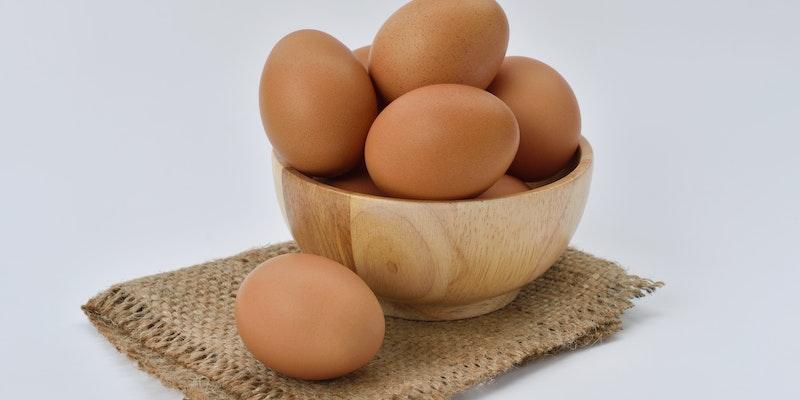
Rich in nutrients, Eggs are crucial to a balanced diet, especially for blood pressure management. A 2023 research of 2,349 US adults revealed egg consumption decreases systolic blood pressure. Eggs help maintain healthy blood pressure levels, as regular egg consumption reduces the risk of high blood pressure.
Besides blood pressure control, eggs are not associated with other heart disease risk factors. The newest research suggests that healthy individuals may safely eat up to three eggs per day, demonstrating eggs' variety and inclusiveness in a balanced diet. Eggs' high protein, vitamin, and mineral content make them a practical and healthy food for cardiovascular health, especially blood pressure management.
Low Fat Dairy
Low-fat dairy products contain calcium and are considered the best foods to eat for high blood pressure, a critical high-blood pressure fighter. Feller adds that yogurt's potassium, protein, vitamins, and minerals complement your diet. A 12-ounce low-fat yogurt serves 30% of the daily calcium requirement, which can help you with hypertension.
Broccoli
Broccoli, a green cruciferous vegetable, is rich in nutrients and promotes circulation. Its ingestion has health advantages, especially in blood pressure management. Broccoli possesses abundant flavonoid antioxidants, rendering it a favorable dietary component for regulating blood pressure levels.
Broccoli possesses a high concentration of flavonoids, compounds that effectively reduce blood pressure levels. Antioxidants have been found to enhance blood vessel function and increase the amounts of nitric oxide.
Vasodilator nitric oxide relaxes and widens blood vessels, improving blood flow and lowering blood pressure. Flavonoids improve vascular function, decreasing artery wall pressure and boosting heart health.
In an extensive research of 187,453 people, broccoli was shown to reduce blood pressure. Four or more servings of broccoli each week reduced the risk of high blood pressure compared to once a month. This shows the need to eat broccoli regularly to regulate blood pressure. A delightful and healthy way to promote heart health is to eat broccoli. It is rich in antioxidants, whether steamed, stir-fried, or added to salads and soups. Broccoli is a tasty method to prioritize cardiovascular health and live a balanced lifestyle.
Herbs and Spices
Powerful chemicals in herbs and spices may lower blood pressure by relaxing blood vessels.
Animal and human studies suggest herbs and spices may decrease blood pressure as they are the best food for high blood pressure. Some of these are:
- Celery seed
- Cilantro
- Saffron
- Garlic
- Onion powder
- Chilli powder
- Oregano
- Cumin
- Red pepper
- Cardamom
- Basil
- Ginger
Conclusion
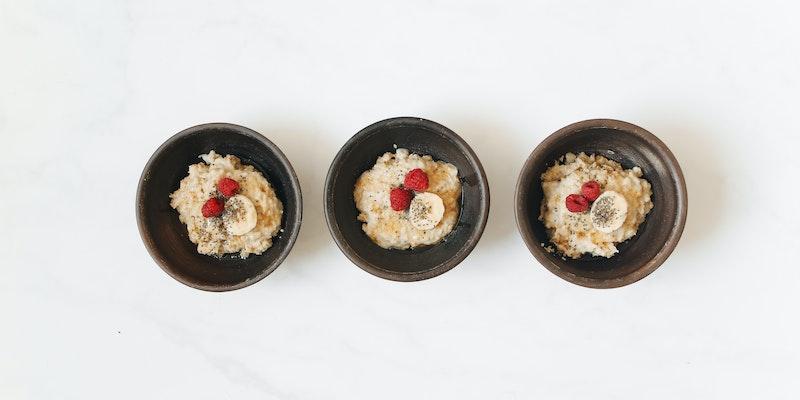
Therefore, a balanced diet helps manage and prevent hypertension, heart attack, and stroke. Include certain meals to control blood pressure. Omega-3-rich salmon may lower blood pressure and inflammation. The high-fiber whole-grain oatmeal regulates weight and cholesterol.
Spinach and Swiss chard maintain blood pressure with potassium and magnesium. Nutrient-rich eggs reduce systolic blood pressure and prevent hypertension. Calcium-rich, low-fat yogurt can decrease blood pressure. When combined with a healthy lifestyle, these food for high blood pressure promote heart health and blood pressure. Medical counsel is needed to customize diets.


